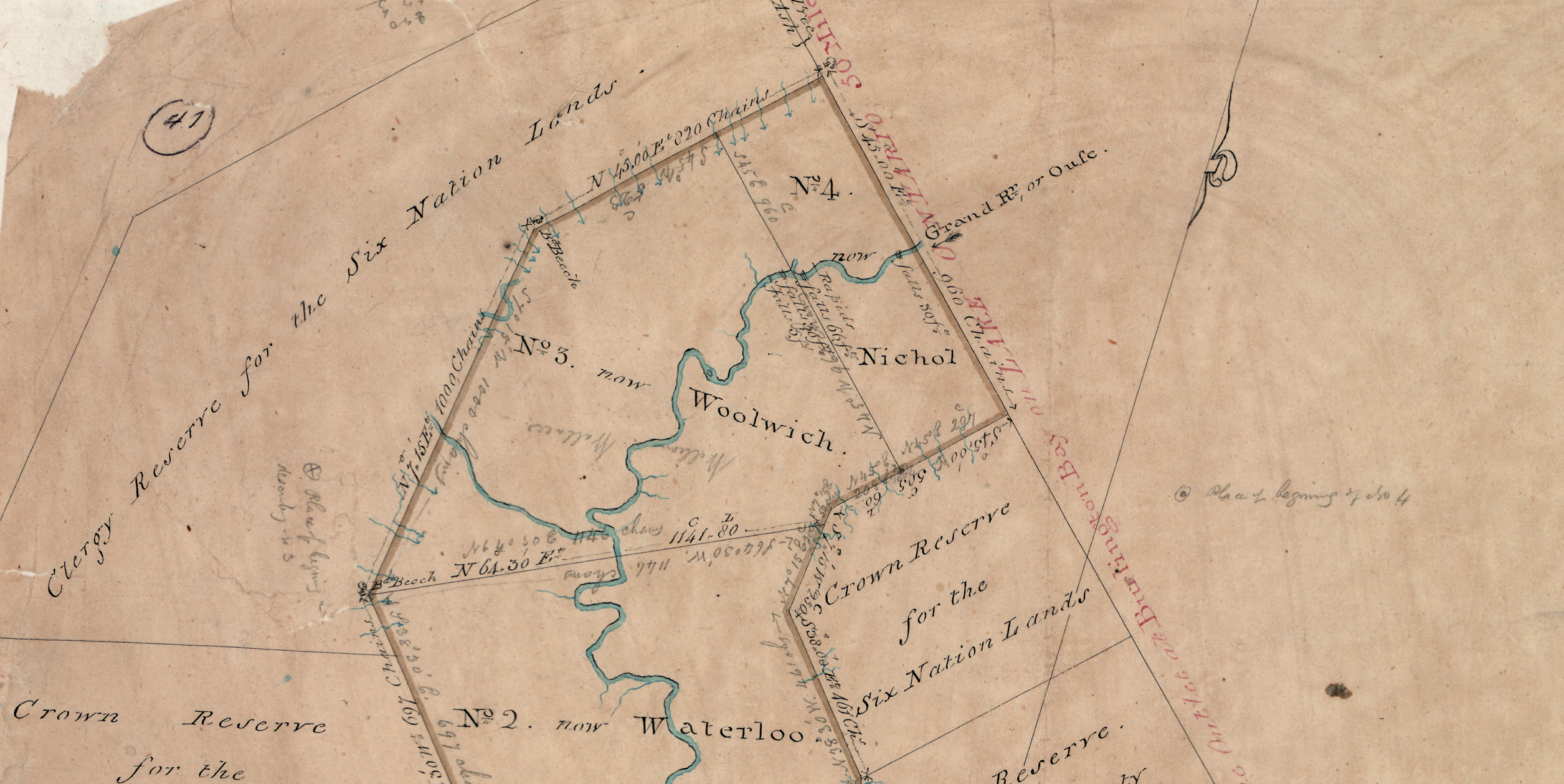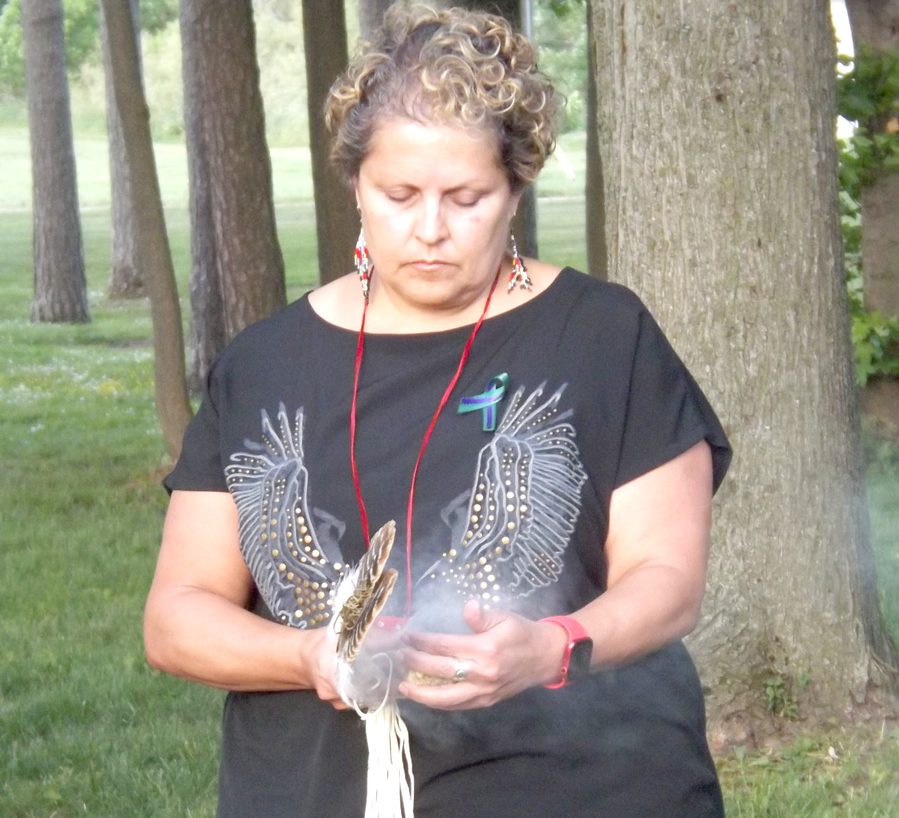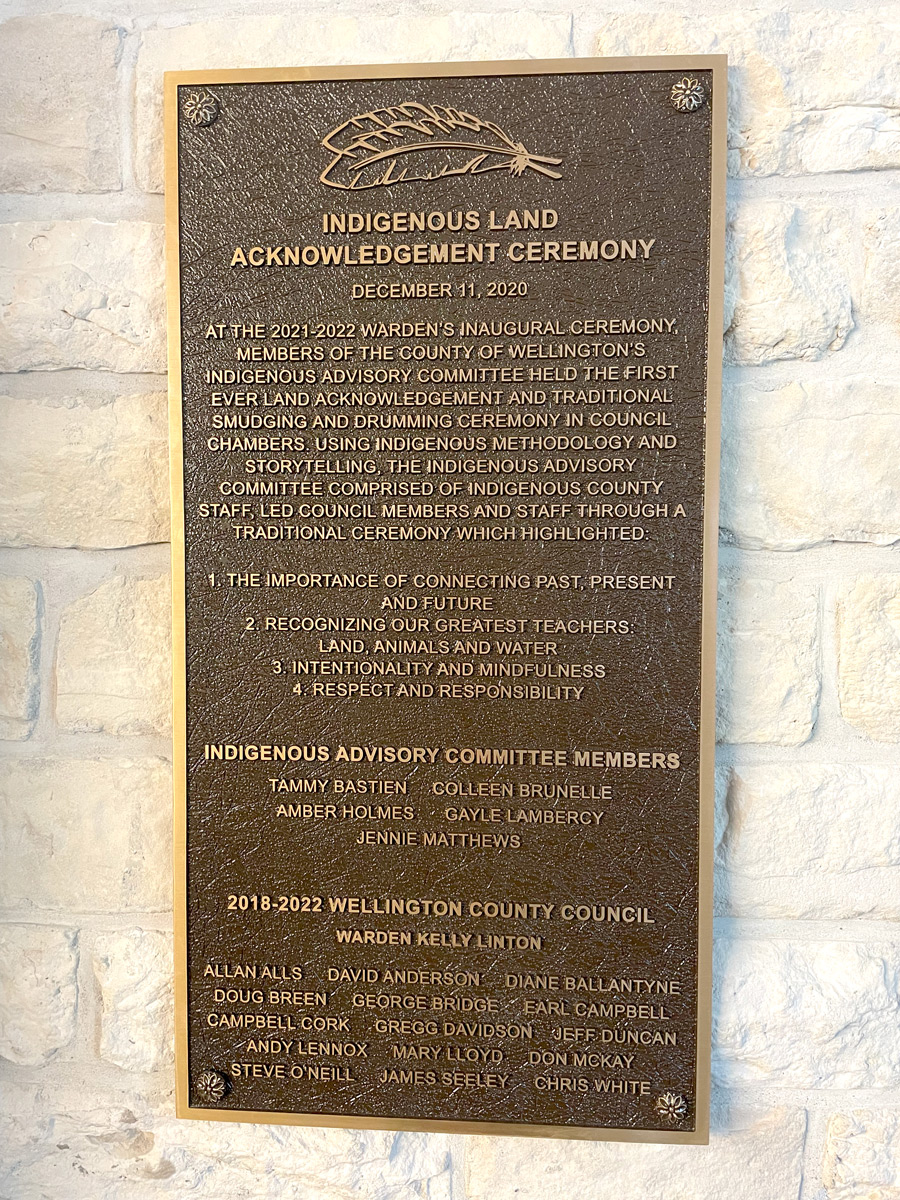GUELPH – The County of Wellington won’t be adding an Indigenous land acknowledgement prior to each county council meeting, at least in the short-term, opting instead to focus on education and cultural awareness.
In February of 2020, county council passed a motion to consider implementation of an Indigenous land acknowledgement prior to council meetings. This motion was referred to county staff for further research and deliberation.
The motion led to the establishment of an Indigenous-led staff committee dubbed the Indigenous Advisory Committee (IAC) to advise on the subject of territorial land acknowledgements.
“It was agreed that a county land acknowledgement would need to be delivered in a manner that was genuine, sincere and meaningful,” states a report from IAC chair Colleen Brunelle presented at the Nov. 25 council meeting.
“A failure to focus on these basic elements could result in a perception of tokenism and subsequent criticism.
“In order to effectively achieve this, the IAC determined that education and cultural awareness of Indigenous issues by county staff would need to occur while researching the Crown Treaties of Wellington County.”
The report notes research conducted on the treaties “provided insights into Wellington’s rich history with Indigenous peoples but also detailed many complexities,” including ongoing legal challenges and land claim disputes.

This image shows a portion of the Haldimand Proclamation of 1784 depicting lands, granted to Six Nations of the Grand River, in what later became Upper Canada and the province of Ontario. Plots three and four depict modern-day Fergus and Elora. This pictured survey of the lands was completed in 1821 by Upper Canada surveyor Thomas Ridout and is thus known as the “Ridout Survey.” The original survey occurred in 1791 to define the area, but records of it were lost. (Image in the public domain)
“Acknowledging the cultural sensitivity with respect to this issue, the IAC proceeded to construct a respectful land acknowledgement worthy of the county’s rich Indigenous history. Completed in August 2021, it remains in draft form awaiting council approval should they wish to proceed with implementation,” the report states.
The draft acknowledgement states: “The County of Wellington is unique in that it has multiple treaties that sit in the traditional territory of the Anishinaabe people. Throughout time this land has been, or continues to be, inhabited by other nations including the Attawandaron, Haudenosaunee, Métis, Inuit, and many other First Nations. We acknowledge that we are not the original stewards of these lands, but now have the responsibility of not only taking care of the land and its people, but ensuring that future generations are able to thrive here. The county is committed to a better understanding of past, present and future as a gesture of our commitment to the process of reconciliation.”
Prior to the completion of the draft version, an event-specific land acknowledgement was utilized as part of the ceremonies at the Warden’s Inaugural on Dec. 11, 2020.
Measures implemented by the county so far in response to the work of the IAC include:
- a bi-monthly newsletter for county staff to educate about the Treaties of Wellington County and Indigenous cultural pedagogy;
- gender-based violence awareness education was shared with staff with plans for training addressing this issue that affects Indigenous women and children;
- encouraging participation by staff in Orange Shirt Day and designing an Indigenous logo for county shirts, with proceeds from the sale of shirts (over $5,500) donated to Anishnabeg Outreach Healing and Wellness programs that support Residential School survivors;
- on Sept. 30, the first National Day for Truth and Reconciliation, the IAC held a virtual Lunch and Learn event on subjects such as Residential Schools and the 94 Calls to Action.
In addition, training opportunities are being offered to county staff through online, self-directed courses, such as Indigenous Canada at the University of Alberta, and numerous other projects are still in the works.
CAO Scott Wilson said he feels the county is addressing the issue of Indigenous land acknowledgment through the measures currently implemented or in development.
“From my perspective, Wellington County, through the great efforts of the Indigenous Advisory Committee, are addressing the issue of land acknowledgement,” said Wilson.
“My recommendation to council would be that we continue to support these efforts … and efforts like them, to educate ourselves, train our staff and raise awareness of the Indigenous issues.”
Wilson added, “And the land acknowledgement that you find in here is something that I would believe council would be wise to continue to use at the Warden’s Inaugural (meeting), every other year.”
Numerous councillors praised the work of the committee, beginning with Warden Kelly Linton.
“I know as a county councillor I speak for all county councillors when I say how proud we are of you and your team and the very, very valuable work that you have done to bring this rich Indigenous heritage that the county enjoys to the forefront,” Linton told Brunelle.
“I really, truly appreciate the work that was done there. I love the live acknowledgement, I thought that was one of the best I’ve read anywhere,” said councillor Alan Alls.
“When I bought this motion forward about a year ago, I hadn’t realized how much work and effort that the staff was going to be putting into this,” said councillor Don McKay.
He added, “I hope that we can continue on doing that work and continue to work together toward reconciliation.”
Councillor Diane Ballantyne echoed praise for “the exceptional work” of the IAC.
“It’s incredible to see the responsibility and the leadership that you’ve taken on to work with county staff to increase their knowledge and understanding,” she stated.
“The part that I will disagree with is the CAO’s position that the land acknowledgement should be given every other year at the Warden’s Inaugural.”
Ballantyne continued, “It’s certainly important for us to continue our learning. But it’s also exceptionally important for us to model both truth and reconciliation by providing land acknowledgements at each of the county council meetings, not as an extra add-on every two years.
“So that’s the part that I would disagree with, but certainly nothing in the report.”
“Doing it twice through a term of council, to me, does not seem appropriate,” agreed councillor Mary Lloyd.
“I think the wording here is very embracing of the whole of what’s happened in our history and it’s a good way for us to have a gentle reminder that we weren’t here first, someone else was here before us.”
“I think it’s a great report. A lot of effort’s been put in,” said councillor Earl Campbell.
However, he added, “I’m standing here a little confused as to whether or not we’ve actually progressed to the point where we’re in a position to respectfully give that land acknowledgement.”

Wellington County settlement services program manager Colleen Brunelle, a member of the county’s Indigenous Advisory Committee, conducted a smudging ceremony and provided a land acknowledgement at an event in Harriston on June 10. Advertiser file photo
“This report came after a long time of writing and consideration,” said Brunelle.
“We talked a lot about what our place is. It’s not our place to advise county council what to do. However … in order to do something justice, and do it in a meaningful way, and not just check a box, we decided that it needs to be done with education and cultural awareness and sensitivities.”
Brunelle added, “I’ve gone to different functions, where I’ve listened to land acknowledgments read through a piece of paper, mispronounced, and it all goes out the window, the intentions are lost. I value the county, I value my employer and … I didn’t want to see that happen.”
Brunelle acknowledged council was under public pressure to avoid the perception “you weren’t doing enough.
“And that criticism was hard to hear, but one of the things we know through traditional Indigenous ways of knowing is not to rush things. So this is why we weren’t rushing it. We wanted to get it right,” she explained.
“Do I feel we’re at a position to do land acknowledgements every time we have a meeting? I don’t think we’re there yet.”
Brunelle continued, “Wellington is pretty unique in the amount of treaties that we have and the research that’s had to go into that.
“And it’s further complicated, by the fact that we’re a government body dealing on the Haldimand Tract where things are before the courts.”
Brunelle said the committee didn’t want to “open the proverbial Pandora’s box” without letting council “know exactly what we found out.”
A motion to receive the Indigenous Advisory Committee’s land acknowledgment update report for information was approved by council.




